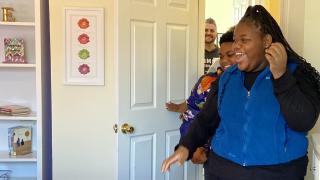The main intention of this feature is to help faculty do end-of-semester course improvement. For example, if faculty can correlate viewing certain content with better grades, or conversely, conclude that a video didn’t help students much, then they would know what content to keep and what to revise. But he says, in practice, some faculty use this feature to incentivize watching videos — giving students points if Canvas registers that they’ve watched. For several reasons, though, Casey says this isn’t a best practice. Most obviously, students can play videos while scrolling through Instagram and still get full credit. Even more problematic: Some common ad blocking and privacy extensions are known to anonymize student Canvas identities, meaning a student could watch a video and not get the credit. Furthermore, if students were watching the video in a small group, then only the student who was logged in through Canvas would show up as having watched. Because of this murkiness, Casey says faculty are discouraged from awarding points based on viewing videos.
Finally, the other big myth he often has to bust is that faculty can see if students have posted on Chegg. If you’re not familiar with Chegg, it’s an educational technology website that’s a little notorious in the higher education world because students have been known to use its forums to cheat on assignments and exams. But Casey says this one is indeed false. “Well, I should say false with an asterisk.” Casey says it’s false because Canvas does not allow faculty to directly correlate a student account with a student’s Chegg account. The one caveat is that some faculty have started personalizing questions on assignments and tests. “So the students might all get the same basic question, but one number in the equation might be different for each student.” This essentially gives the question an ID tag that’s correlated with each student. And if the instructor searches Chegg forums and sees that that question has been posted, it could be interpreted as evidence of an academic integrity violation.
Casey says folks in his office and instructional designers at The Hub generally discourage this kind of approach. “It can definitely devolve into a kind of academic integrity arms race,” he says. “And that’s not the kind of environment we think is most conducive to learning. Ultimately, we think a big part of the solution will be to change the way that assessment is done. If we have more authentic assessments, and fewer multiple choice tests, we can deal with a lot of these academic integrity issues while improving education.”
Casey says people in his office understand that paradigm shift is not going to happen overnight, and certainly not while many faculty are scrambling to adjust to all the other nuances of a remote learning environment. But for anyone who’s interested, he says they’re always here to help.
###
The UM-Dearborn community is committed to promoting academic integrity at the university. For more on this topic, check out some other perspectives from faculty and student government. The Office of Digital Education also recently worked with Student Government and The Hub to create a new privacy statement for Canvas. You can find it under “Getting Started With Canvas” on the main student Canvas support page. And as always, if you’re a faculty member who wants to do more with your online course, you can schedule an appointment with one of the instructional designers at The Hub.







